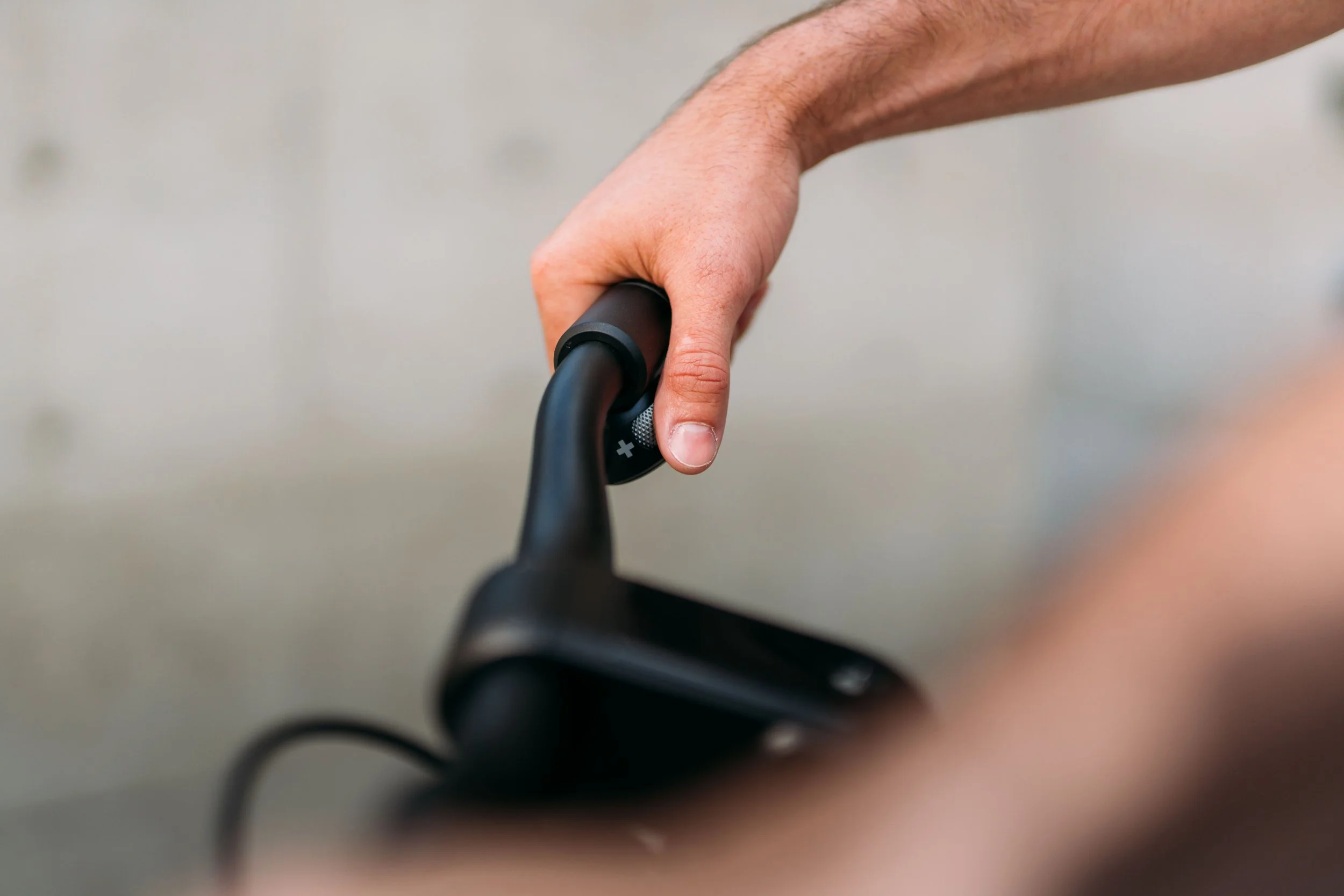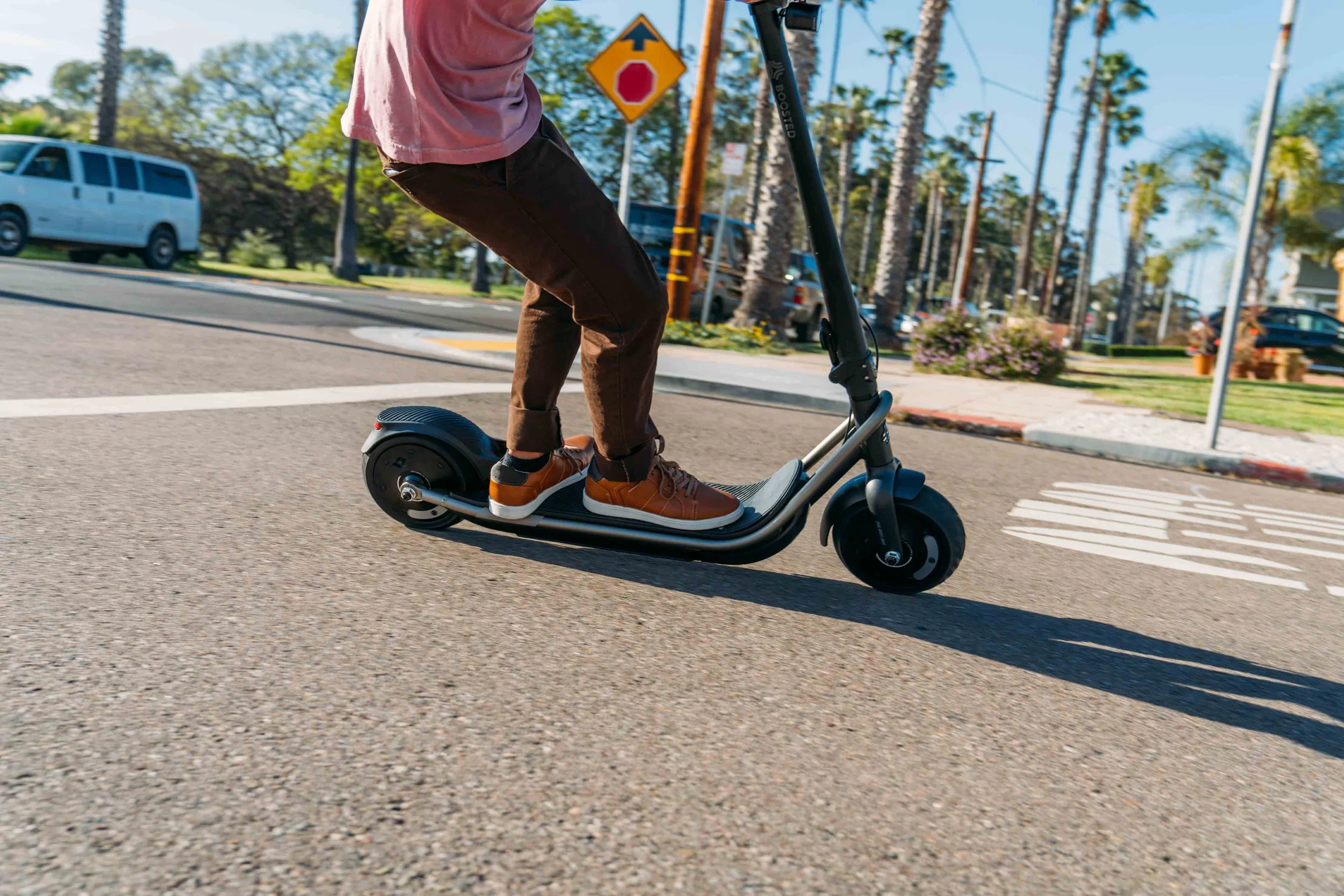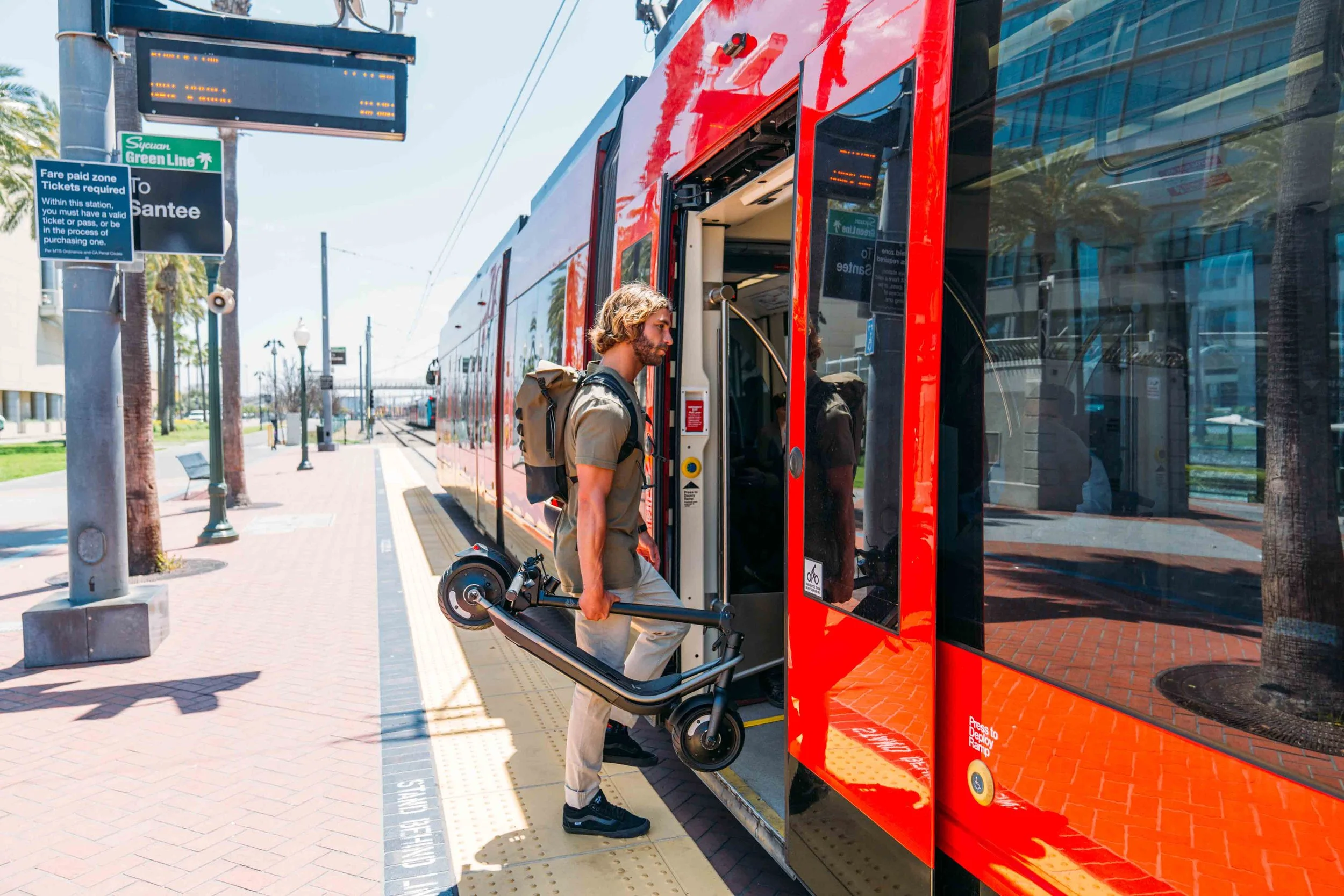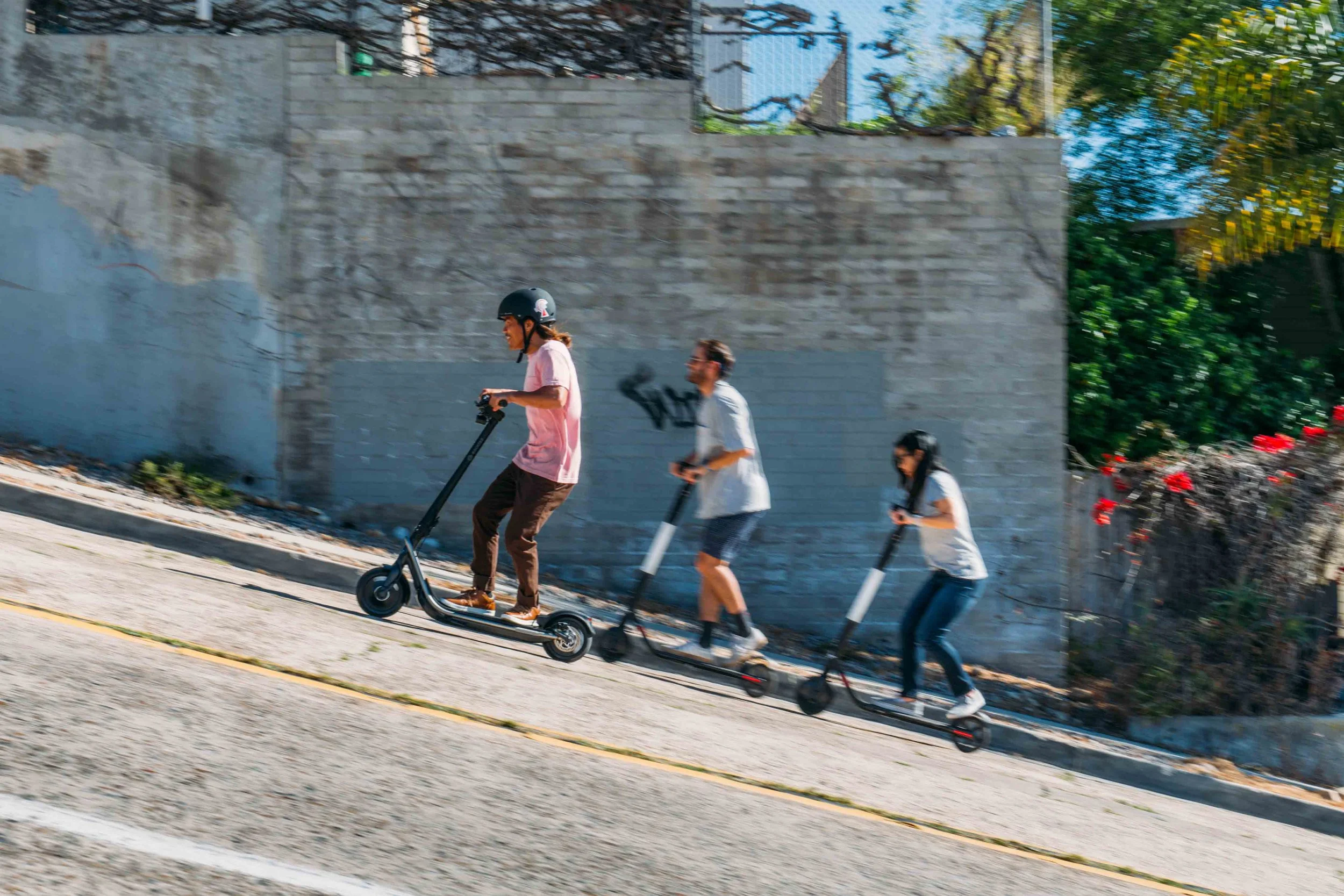Boosted Rev
Boosted
With Jukka Rautiainen, Logan Price
2019
A bold new scooter design built from the ground up with the full Boosted treatment. I worked with two other designers, our incredible engineering team, and our overseas suppliers to bring this product to life.
A Boosted scooter?
Boosted became known for making the best electric skateboards on the market. While some boards were faster and others had more range, none of them had that Boosted magic. Our mission with this project was to bring that perfect balance of performance, durability, and ease to an electric scooter.
Concept Exploration
Scooters come in many sizes; from tiny folding Razor scooters to big-wheeled downhill standing bikes. We started honing our concept by riding and experimenting with various tire sizes and types, battery placement, rake angles, handlebar widths, etc. Once we settled on a use case, we focused on the overall form and how to visually handle critical junctions and details. People really resonated with our bike-like tubular structure concepts because of their familiarity and approachability. This form language also helps communicate the dependability and legitimacy of our scooter as a viable form of transportation.

Vehicle Dynamics
We knew from the beginning that getting the scooter’s core dynamics right would be critical for achieving a product that’s truly exciting to ride. Most scooters on the market lack basic prioritization of ergonomics and vehicle dynamics, leading to unstable, uncomfortable, and unsatisfying riding. After study and testing, we came away with understandings about a few critical factors for a good ride:
A low CG, wide deck, and beefy tires provide stability and confidence.
A low standing platform helps users feel less conspicuous and makes hopping on and off the scooter more intuitive.
An agressive rake angle with just the right mechanical trail makes handling both nimble and stable.
Bars with just the right backsweep, upsweep, offset, and width give an “in-the-cockpit” connection to the scooter.
These factors combine to make a vehicle that just feels “right”, inspiring confidence in riders so they can focus on the busy road around them instead of what’s under their feet.
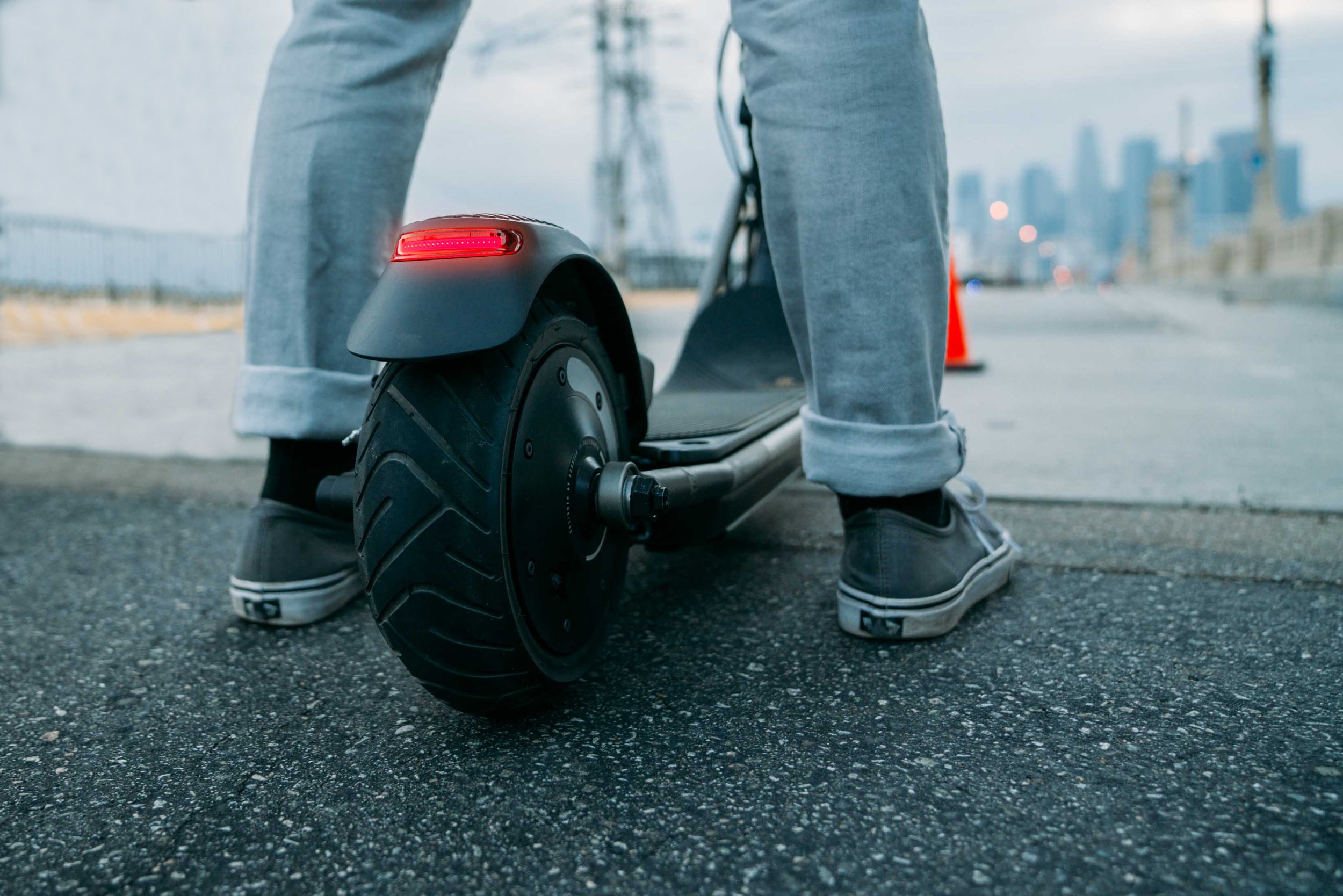
Wheels
More power, more control.
Somewhat surprisingly, we found that providing ample torque and speed enables riders to be safer on the streets. Having a powerful motor in each wheel enables our them to be in command off the line, merge smoothly with flowing traffic, and bolt out of sticky situations with ease.
Motor & Wheel
At this time, very few OTS parts existed for electric scooters, so we developed our own motor and tire to fit our research findings. This enabled us to provide a better user experience, higher performance, and gave us more control over surfacing and CMF. We also partnered with tire industry experts to design and test three different tread patterns for noise, water shedding, traction, and durability.




Design & Development
Cockpit
The most critical touch point
When it came time for us to choose a throttle, it was immediately clear that none of them satisfied our need for control; once again, it was time to make our own. We explored several architectures, eventually landing on reinterpreting the wireless Boosted remote for a handlebar mount. This architecture gave us precise throttle control as well as the ability to incorporate regenerative braking.
Every person has surprisingly varied hand shapes, sizes, and preferences, so finding the right balance took an incredible amount of hands-on design work. We tested dozens of options for wheel angle, rotation, throttle throw, wheel geometry, and wheel texture. We tested extremes like riding with gloves, with pruny hands, and while riding over cobblestones. Critically, the final design includes adjustability so riders can dial the feel in just how they like it. The end result is something I’m incredibly proud of.
“I was a bit worried about how (the throttle) would feel on a handlebar, but it took me all of three seconds to get used to it. And I love it. The button is nicely knurled so it feels great on your thumb. Applying more throttle or rolling on the brake feels very intuitive. It’s a hard thing to describe, but trust me when I say that it works well and that Boosted executed it nicely.”
– Micah Toll, Electrek

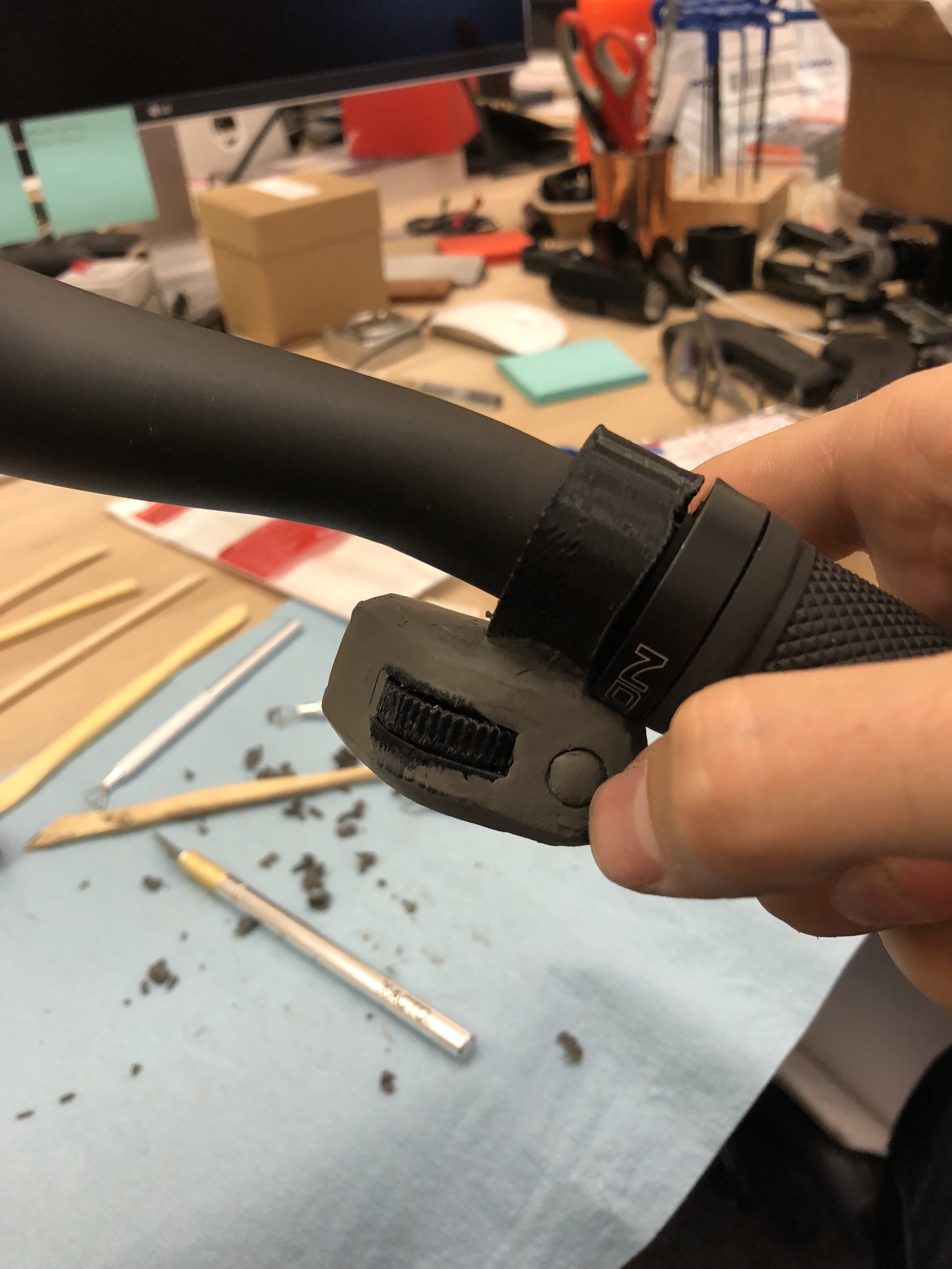



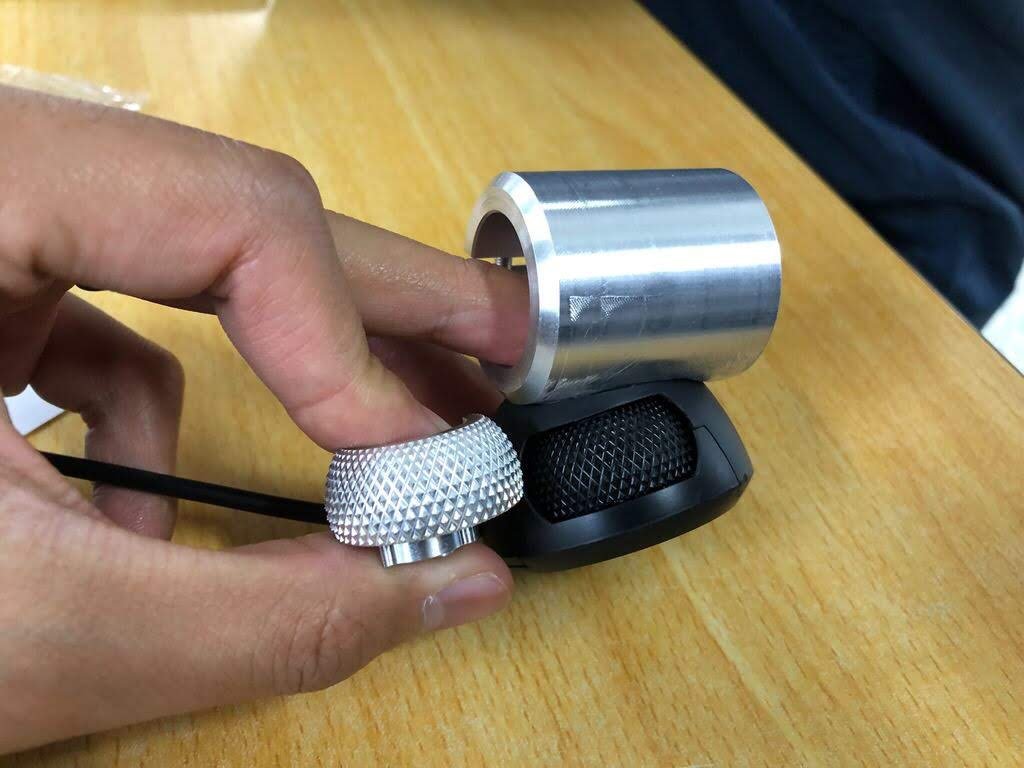
A simple display
I worked closely with our engineering team to bring this feature to life. None of us had every made a display like this and they weren’t sure it could be done. I got busy tearing apart various consumer electronics to figure out how to execute my vision in a cost-effective and clean way.
We prioritized the display’s information and hierarchy to be glanceable. Rather than including tiny details and non-essential information, we focused on speed, ride mode, and state-of-charge indicators. A single button with multi-click commands keeps operation simple, while deeper functionality can be found in the Boosted app. This resonated with the Boosted remote’s simplicity and functionality, while incorporating other important considerations.




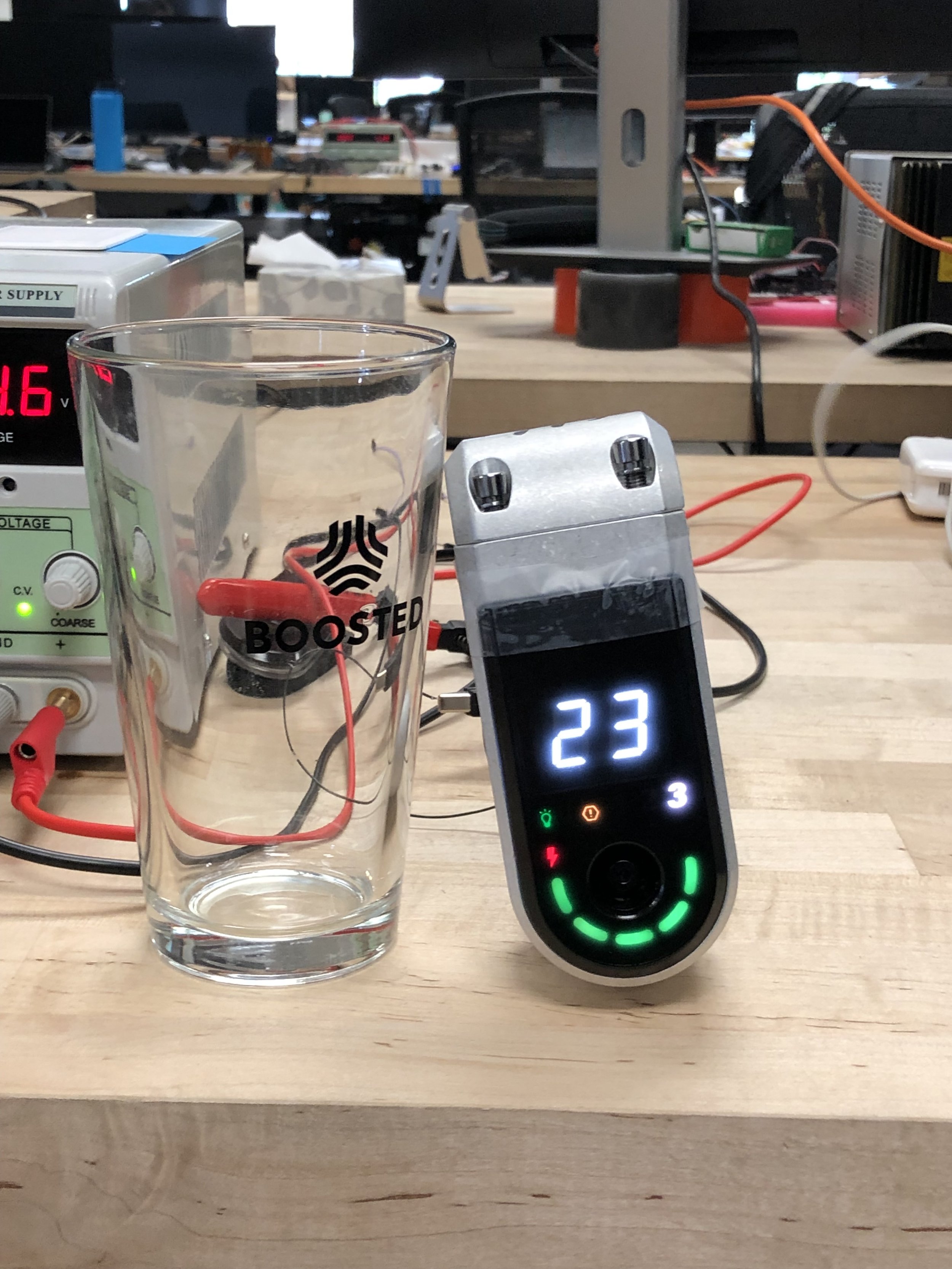



Folding
Creating a folding mechanism proved to be one of our most challenging tasks. There’s a pretty large tolerance stack-up involved, and a lot of moving parts. I worked closely with our engineering team to include adjustability for that tolerance stack and ensure a robust and user-friendly solution. I created and prototyped multiple concepts and helped bring them to life. By integrating the latch mechanism with the rear stomp brake, we were able to kill three birds with one stone, providing a robust and compliant fender, extra user safety, and a solidly satisfying latch point.
My stretch goal was to create something that’s easy enough that it’s possible to do with one hand. By working together, we were able to achieve that goal for both the latch and the folding lever.

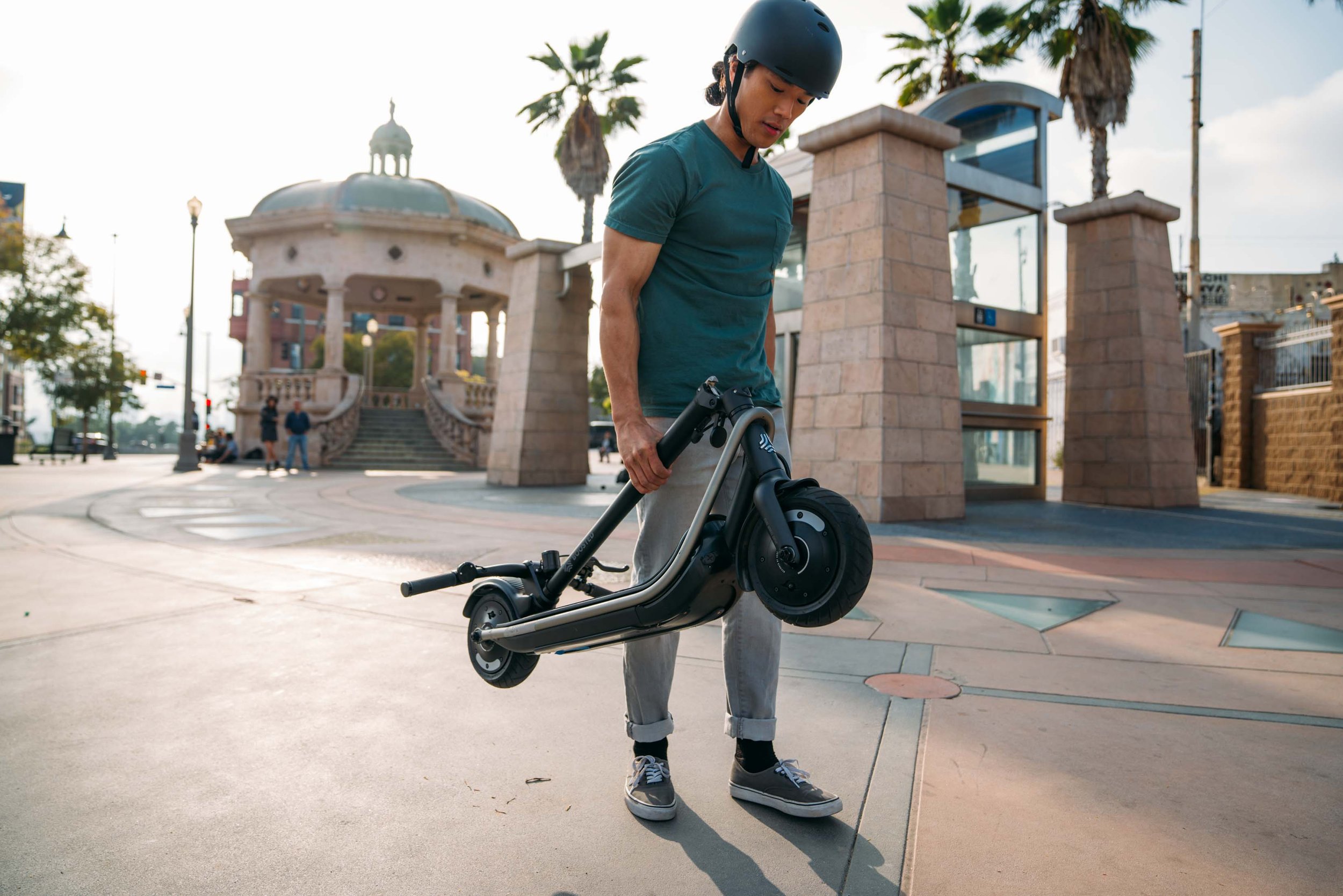




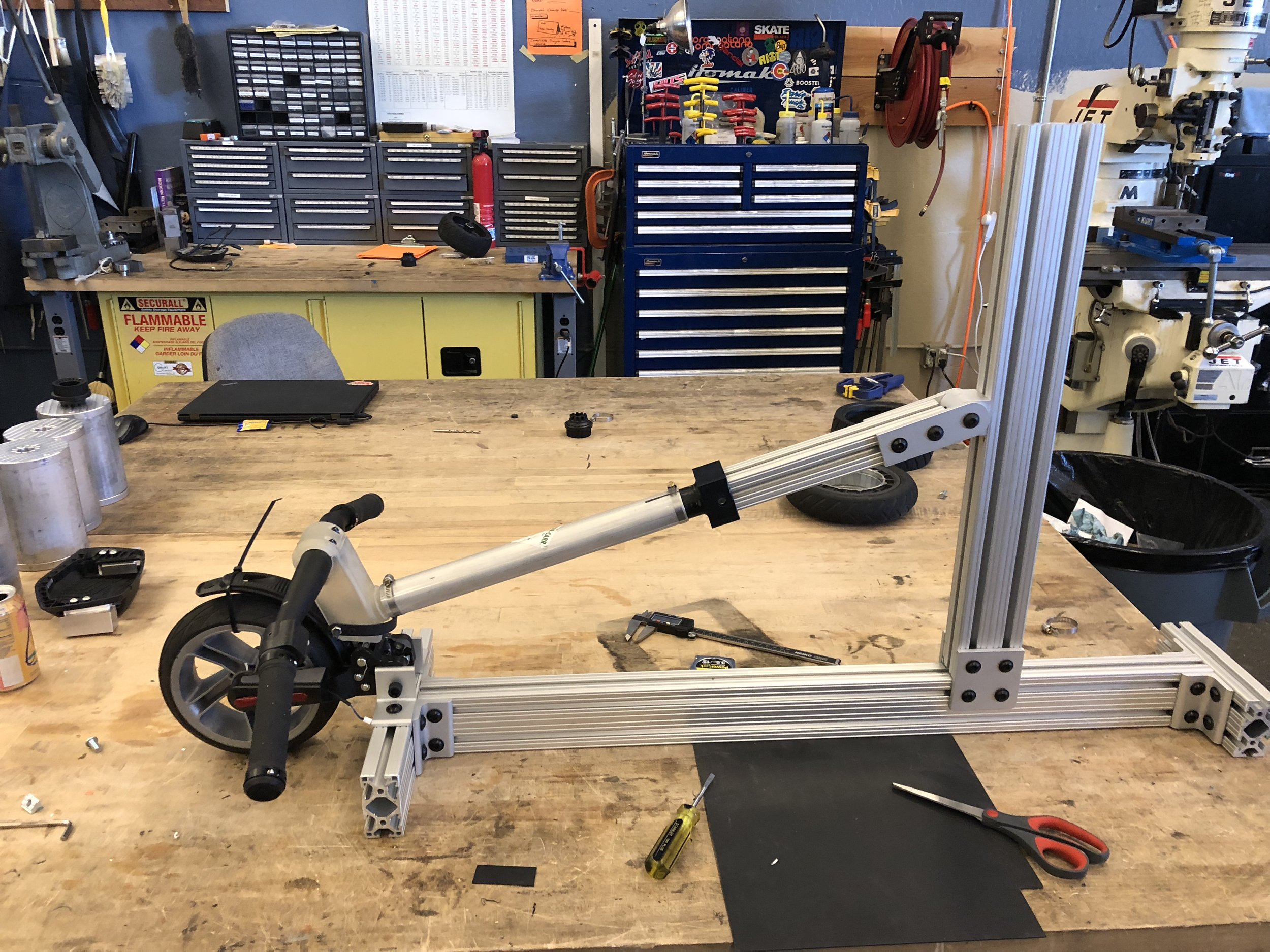

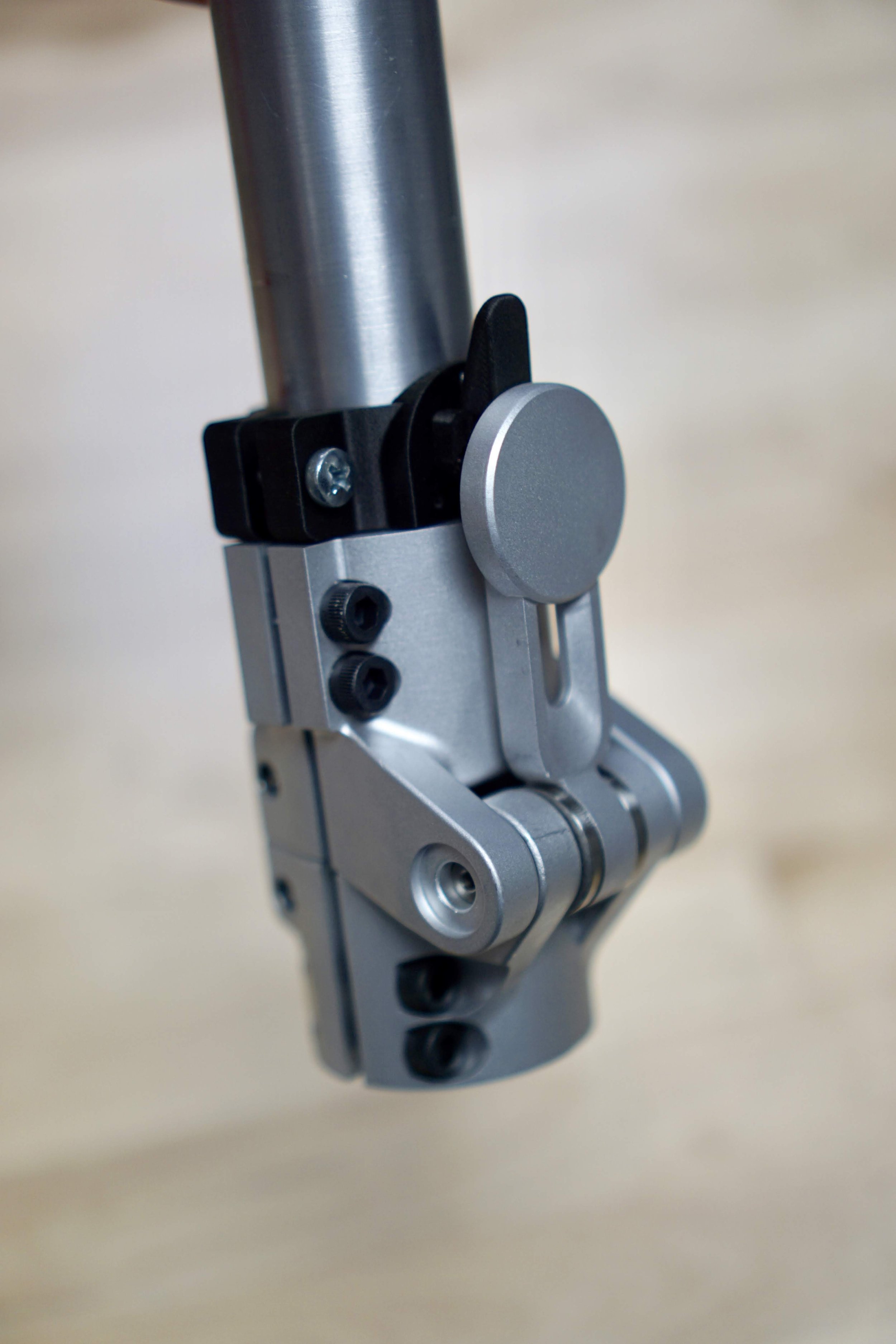
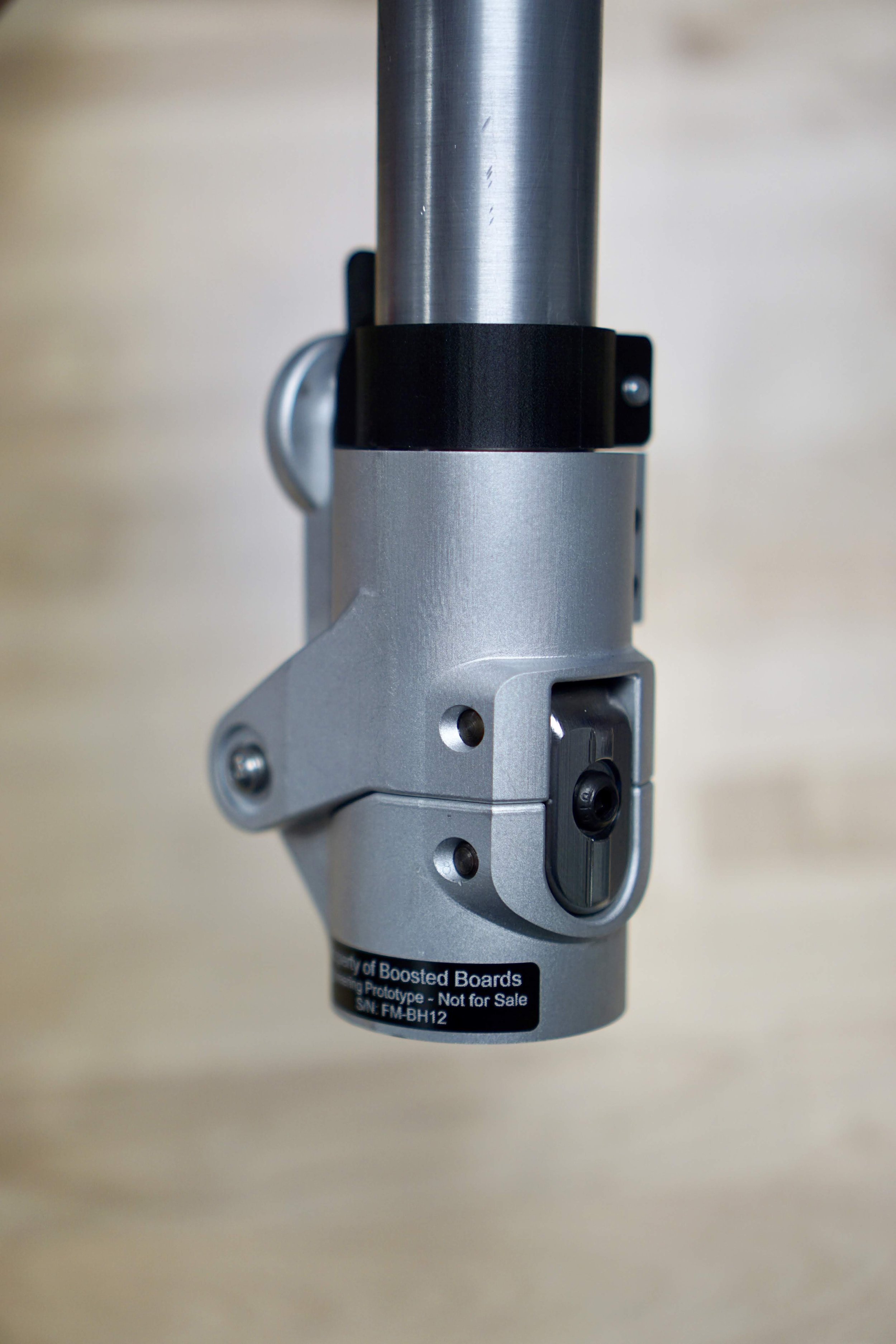


Design & Development
Packaging
Managing constraints
I worked closely with our product manager, fulfillment team, marketing, and packaging vendor to create a robust design that would make the customer experience as seamless as possible while minimizing shipping costs. The core concept of the design hinges around creating a magical product reveal. Inspired by TV boxes and motorcycle crates, the main cover releases with four small plastic clips and lifts to reveal the scooter in all its glory. It leaves behind a form-fitting tray that holds the scooter in place during handlebar assembly. The accessory & handlebar box opens to immediately reveal the 5mm hex key needed for assembly (one screw), and straightforward instructions to do so.
The result is an elegant, low-waste, durable solution that works both on retail shelves and in direct-to-consumer shipping.
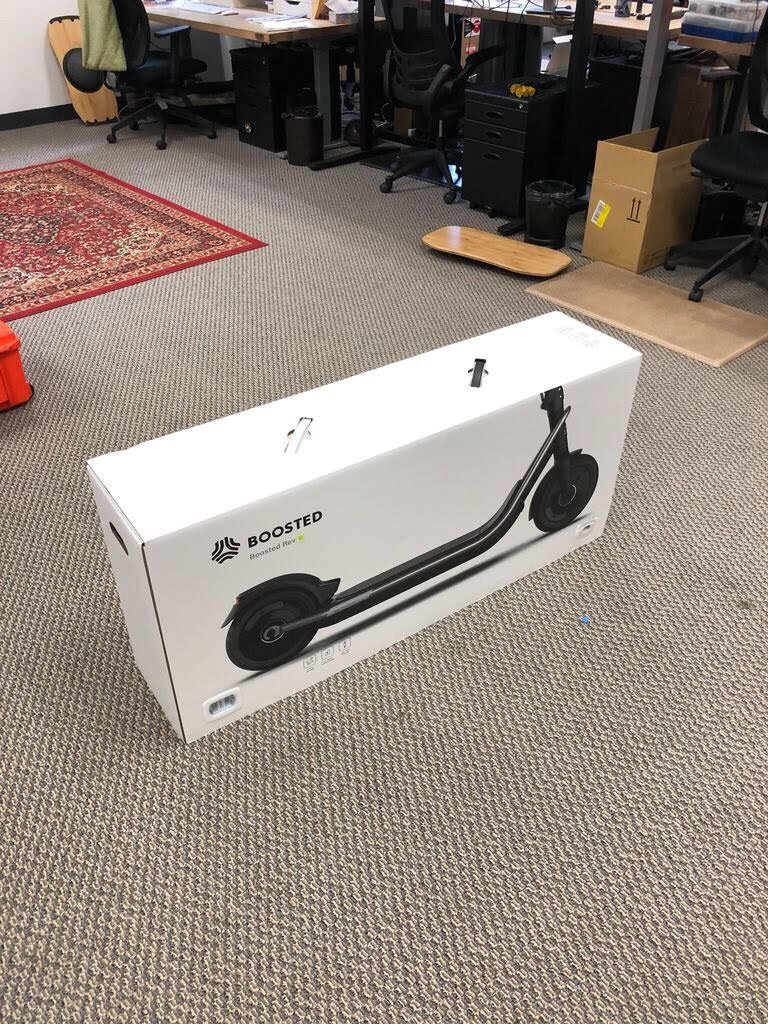


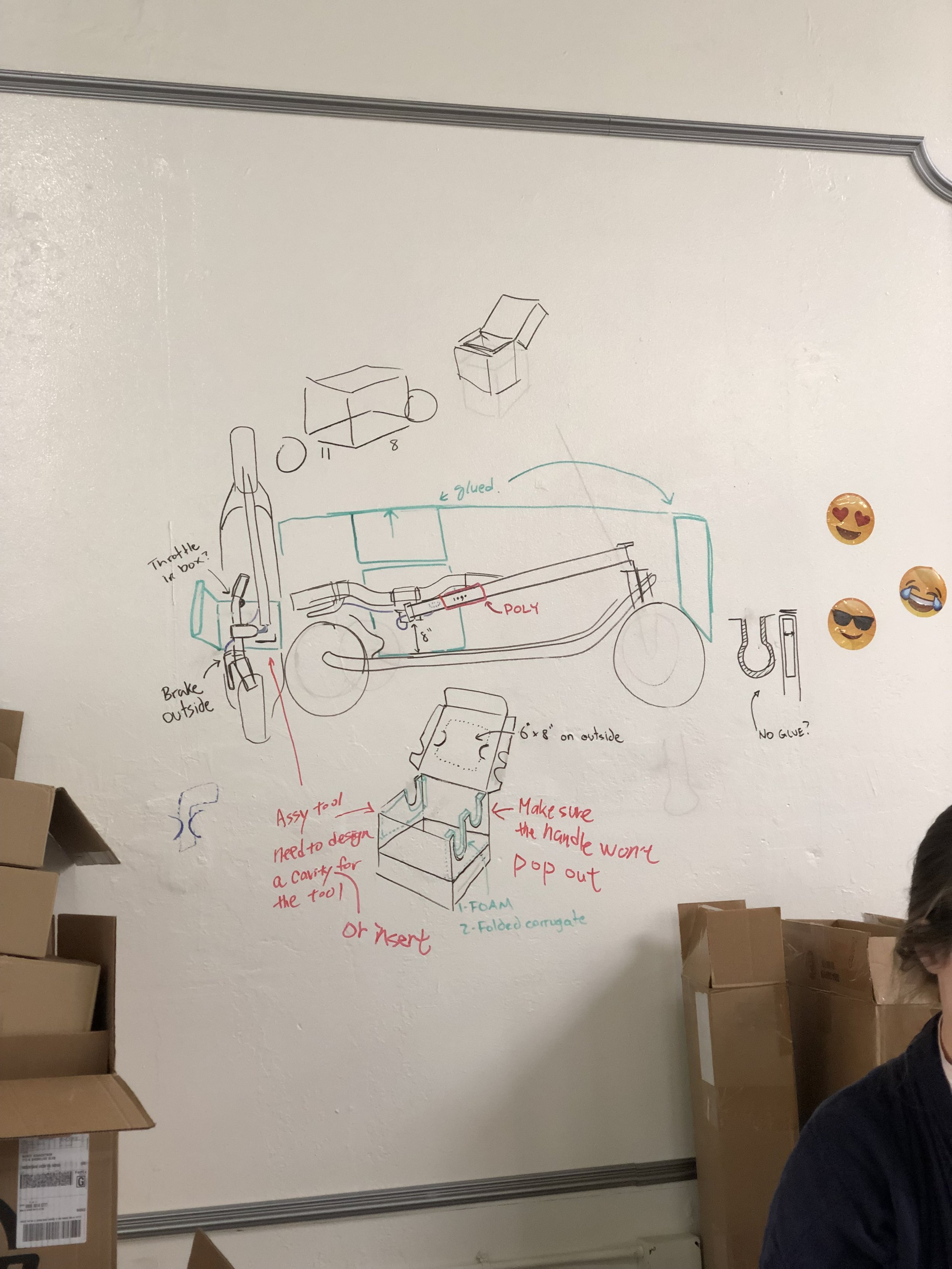






Launch
Let’s connect!


